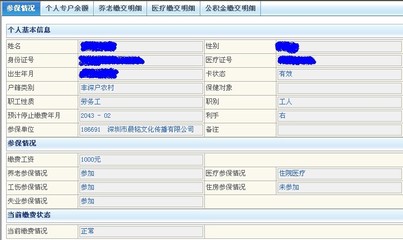在前面的语法点中,Kelly老师已经给同学们讲述了5中时态了,它们是:
(1)过去时间动作或状态的:一般过去时 过去进行时
(2)现在时间内动作和状态: 一般现在时 现在进行时
(3)过去的动作和现在有联系: 现在完成时
今天Kelly老师介绍一个新的时态: 一般将来时
毋庸置疑,一般将来时句子中表示的动作肯定还没有发生,一般将来时表示将来要发生的事情。
Practice:
Read the follwing sentences:
1. My father will come back in three days.
2. I will help you with the housework soon.
3. Will cars be able to fly in the future?
4.What are you going to do this weekend?
5. There is going to be a meeting tonight.
一般将来时:
Example:
1. He will be free next week.
2. Charlie won't work next month.
3. Will you be free tomorrow?
4. Shall I get you a copy of today's newspaper?
5. Tomorrow I am going to fly a kite in the open air and thenwill go boating in the park.
(一)常用的表示将来的时间:
tonight, tomorrow, the day after tomorrow, tomorrowmorning/afternoon/evening
several days later
in one minute, in two days, in three years, in the future
next week/ month / year
before long, soon, from now on
one day, some day next year,
(二)一般将来时结构:
1. will +do
will 适用于所有的人称,而且will没有人称变化;will 之后用动词原形(注:am,is,are的原形为be)
2. shall + do
shall 仅适用于第一人称I和we,shall可以用will来代替。
3. be going to + do
be goingto适合所有的人称,be动词使用相应的形式am, is, are
be going to 后直接用动词原形,也可以加名词,eg. I am going to the park this weekend.
be going to 和 will结构在用法上没有很大的区别,很多时候都可以相互转化。
be going to在口语中用的比较多,而且多用来表示“事先考虑好的意图”或“明显要发生的事情”
(1)Tomorrow,there will be a football match in ourschool.I`m going to watch it.
(2) Look at those big black clouds.It is going to rain.Let`shurry.
(三)一般将来时的用法:
最普通的用法:
一般将来时表示将来要发生的动作或存在的状态
Charlie won't work here nextmonth. Charlie下个月不在这里工作了。
He is very busy this week, hewill be free next month. 他这周很忙,下周就不忙了。
其它具体用法:
1. 表示将来的计划,
I will write to my fathertonight. 我打算今天晚上给我的爸爸写信。
I will/ am goingto visit my teacher this Saturday.我计划这周六去拜访我的老师。
2. 对将来的预测, 推测
It's very cold these days.It is going to snow soon. 这几天一直很冷,很快就要下雪了。
Most of us don't thinktheir team will win. 我们多数认为他们的队不能赢得比赛。
I am afraid there will be a meeting thisafternoon.I can't join you. 恐怕今天下午要开会,我不能和你一起去了。
3. 表示提议或是承诺
I will help you with theshopping. 我将帮你买东西。
I will do my homework onFriday evening. 我到星期五下午再做作业。
4. 表示委婉的请求,
Will you please open thewindow? (或 will you open the window, please?) 在此will you please= could you please
Shall Iturn down the radio? 我可以把收音机调小声点吗?
Shall I buy you a cup oftea? 我给你买杯茶吧!
5. 由if, before, until 引导的从句用一般现在时,主句用一般将来时
If it doesn't raintomorrow, we will go roller-skating.如果明天不下雨,我们就去溜冰。
I will finish my homeworkbefore I leave. 在我离开之前我要完成作业。
Mike won't believe this until he sees it withhis own eyes. 只有当迈克亲眼看到它时他才会相信。
(四)常见句型的一般将来时结构:
there be句型的一般将来时结构
eg.
There is going to be ameeting tomorrow afternoon.
There will be more cars inthe next five years.
Ther ewon't be any class tomorrow.
Will there be heavy rainand strong winds?
Practice:
1.There__ a basketball match this afternoon.
A.willhave B.willbeC.hasD.have
2.There will be some robots in our homes.(改为否定句)
There ___________ ______ robots in ourhomes.
3.There _____ _____(be )an American film nextweek.(
4.将来有学校吗?不,没有。我们将使用因特网在家里学习。(翻译成英语)
5. There will be a sports meeting tomorrow.(一般疑问句)
___ ___ ___ a sports meeting tomorrow?
can 的一般将来时结构__ ___ ___表示将来具有某种能力
1. I will be able to raise my family after I work for two years.等我工作两年后,我就有能力养家了。
2. You will be able to speak English fluently soon if youpractice English everyday. 如果你每天练习英语,你很快就可以说一口流利的英语了。
3. Will cars be able to fly in the future?汽车将来能飞起来吗?
(附)
一.表示将来可能会发生,但不一定会发生,如何表示?
1. My brother and I ____ go to France for acouple of weeks, but it is not certain.
2. I _____ get a job in Italy.
3. Liam and Jill _____ get married next year, but I'm notsure.
答案自己想。
二. 现在完成时表示将来
表示马上就要做的事情:
1. Please wait for me! I ________(leave) in aminute.
2. --- Time for dinner.
-----OK. mom. I_______(come)!
表示将来的计划和愿望:
3. I am planning to retire early.
4. We're hopping to sepend about a year travelling.
5. I'm looking forward to seeing you.
6. I'm thinking of doing a degree in the history of art.
三. 表示将来的结构: be to +do, be about to + do
1. be to+ do 表示按照计划将要做的事情:
Theirdaughter is to get married soon.
He is tohave a holiday.
2. be about to + do 表示即将发生的动作,在时间上指最近的将来
We areabout to start. 我们就要出发了。
Thenewschoolyearisabouttobegin.新学年开学在即。
 爱华网
爱华网

